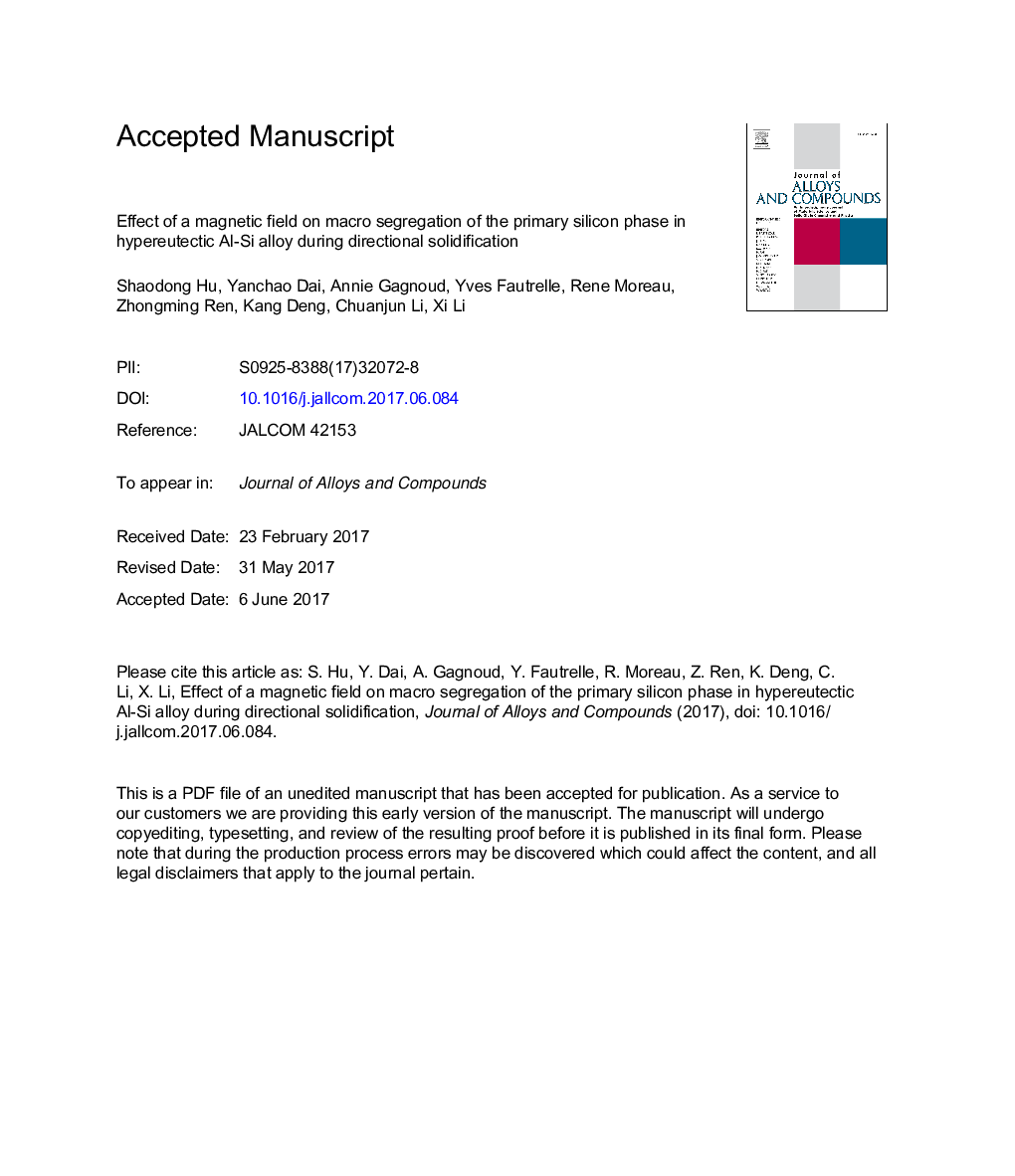| Article ID | Journal | Published Year | Pages | File Type |
|---|---|---|---|---|
| 5460682 | Journal of Alloys and Compounds | 2017 | 28 Pages |
Abstract
Effect of static magnetic field on longitudinal macro segregation of primary silicon phase has been investigated in directionally solidified hypereutectic Al-Si alloy. Experimental and numerical simulation results indicate that the melt flow of Al-21Â wt% Si alloy under magnetic field is the dominant factor leading to macro segregation of primary silicon phase. The intense melt flow, i.e., recirculation loops and microscopic flow, promotes solute Si to the mushy zone and sidewall of the crucible where the temperature is low and the primary silicon is more likely to precipitate, resulting in the formation of the U-shaped interface. The precipitated primary silicon tends to disappear during directional solidification, which induces the transition from the U-shaped interface to the planar interface. The increase of magnetic field intensity accelerates this transition process and increases the macro segregation. Furthermore, the freely drifted fine silicon particles in the bulk melt are transported to mushy zone by the forced flow, which contributes to macro segregation. This work facilitates the understanding of forced flow greatly changing the solidification structures of alloys under the magnetic field during directional solidification.
Related Topics
Physical Sciences and Engineering
Materials Science
Metals and Alloys
Authors
Shaodong Hu, Yanchao Dai, Annie Gagnoud, Yves Fautrelle, Rene Moreau, Zhongming Ren, Kang Deng, Chuanjun Li, Xi Li,
